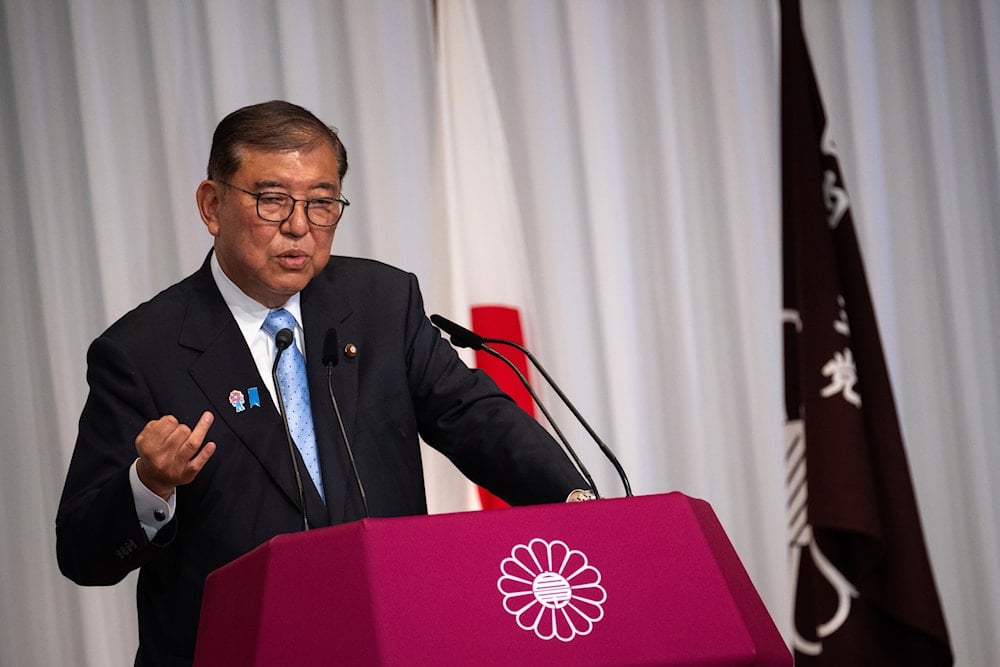Japan's government loses upper house control
Japan’s ruling coalition loses upper house control, weakening PM Ishiba as US tariff deadline looms.
-

Japan's Prime Minister Shigeru Ishiba attends a press conference at the headquarters of the Liberal Democratic Party (LDP) in Tokyo on July 21, 2025. (Philip Fong/Pool Photo via AP)
Japan’s ruling coalition lost control of the upper house in Sunday’s election, deepening Prime Minister Shigeru Ishiba’s political troubles just weeks ahead of a crucial tariff negotiation deadline with the United States.
The Liberal Democratic Party (LDP) and its coalition partner Komeito secured only 47 seats, falling short of the 50 needed to maintain a majority in the 248-seat chamber, where half the seats were contested. The defeat follows the coalition’s worst performance in 15 years in October’s lower house election, further weakening Ishiba's administration and exposing it to potential no-confidence motions.
Despite mounting pressure, Ishiba dismissed the possibility of stepping down. Speaking to NHK after polls closed, he said he "solemnly" accepted the "harsh result" but underscored the importance of staying in office to handle the sensitive trade talks with Washington.
"We are engaged in extremely critical tariff negotiations with the United States... we must never ruin these negotiations. It is only natural to devote our complete dedication and energy to realizing our national interests," Ishiba later told TV Tokyo.
The deadline for a trade agreement with the US, Japan’s largest export market, is set for August 1. Failure to reach a deal could trigger sweeping tariffs, posing serious risks for Japan’s export-driven economy.
Sanseito party rises on anti-immigration rhetoric
One of the biggest surprises of the Japan upper house election 2025 was the far-right Sanseito party, which added 14 new seats to its single preexisting seat.
Launched on YouTube during the COVID-19 pandemic, the party gained traction through its nationalist messaging and anti-immigration rhetoric under the slogan "Japanese First."
Sanseito’s rise has drawn comparisons to far-right parties such as Germany’s AfD and Reform UK. The party has also advocated for fiscal expansion and questioned mainstream policies on public health and foreign influence.
Opposition gains amid economic discontent
The main opposition Constitutional Democratic Party finished second with 22 seats, capitalizing on public frustration over rising consumer prices, especially the cost of rice, and the ruling party’s resistance to tax cuts.
Opposition groups campaigned on promises of welfare spending and lowering the consumption tax to ease inflation pressures, messages that appeared to resonate with voters.
"The LDP was largely playing defence in this election, being on the wrong side of a key voter issue," said David Boling, director at the Eurasia Group. "Polls show that most households want a cut to the consumption tax to address inflation, something that the LDP opposes."
With a weakened ruling bloc, the LDP may be forced to compromise with opposition parties to pass legislation, raising concerns about Japan’s already strained public finances.
"The ruling party will have to compromise in order to gain the cooperation of the opposition, and the budget will continue to expand," said Yu Uchiyama, a politics professor at the University of Tokyo.

 3 Min Read
3 Min Read










